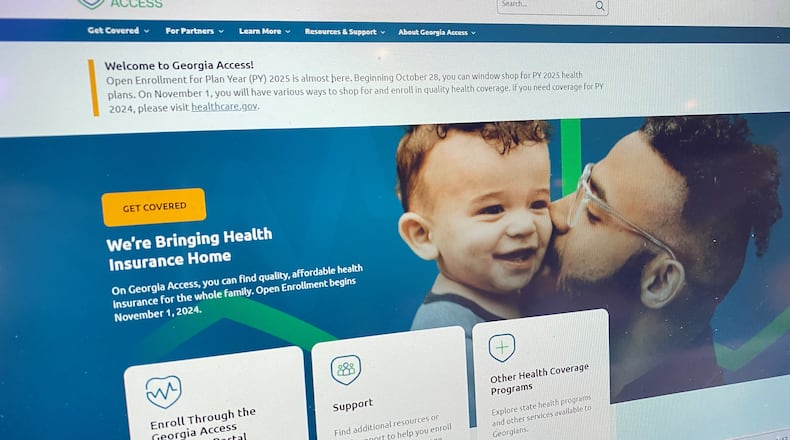Georgia is on track to have among the biggest price increases in the nation for health insurance costs on the Affordable Care Act exchange next year, according to a preliminary analysis of companies’ rate proposals by The Wall Street Journal and the health research group KFF.
Premiums initially proposed by United Healthcare for plans in Georgia would surge an average of 42%, according to KFF researchers. Across all plans, Georgia’s average increase would be 21%, according to the analysis.
That’s compared to a national average of 15%, said Matt McGough, a policy analyst at KFF who worked on the report.
A spokesperson for John King, Georgia’s insurance commissioner, emphasized the proposed rates are not final.
“Commissioner King is in close conversation with insurance carriers and members of Congress to discuss ways we can continue to provide Georgians with a stable marketplace that provides access to quality, affordable private health coverage,” the spokesperson said.
Enrollment in Georgia’s ACA plans, called Georgia Access, has more than tripled in recent years to 1.5 million.
Centene is the company on Georgia Access that insures the most people, and the analysis got ahold of 17 states’ early filings. When comparing the biggest company in each of those 17 states, Centene’s Georgia increase was the fourth highest, behind those in Illinois, Vermont and Washington.
It’s still impossible to say what that means for each individual policyholder and how much they’ll be clicking to pay each month. The individual household’s premium could more than double, or for some people quintuple, McGough said. For others, it might not change much.
The proposals are initial, and companies will come back later in the summer with finalized proposals.
Most important, subsidies from the federal and state government are applied in different amounts to different kinds of policyholders.
Open enrollment begins Nov. 1.
Under the Trump administration, there will be less money for assistance and guidance, more documentation required and less time to enroll. Georgia Access has tried to make up for some of what the federal government won’t supply.
The companies’ reasons for the increases include the rising cost of providing health care and the Trump administration cutbacks. When it’s harder to enroll, healthier people tend to give up, go uninsured and take their chances with the ER.
That alone is predicted to cause more than 250,000 Georgia Access policyholders to go uninsured, according to previous predictions by KFF.
But the report by KFF and the Journal also assumed Congress will stay on track to allow extra pandemic-era subsidies to expire. Those cost the federal government $335 billion. They also made insurance free or mostly free for people at the poverty level, and for the first time gave some federal subsidies to policyholders in the middle-class bracket and above — for example, individuals who make $60,240 a year or more.
If those “enhanced” subsidies go away, KFF predicts an additional 440,000 Georgians will drop Georgia Access coverage.
“It’s very likely that most enrollees are going to be facing a double whammy of higher insurance bills and losing the subsidy that lowers much of that cost,” McGough said.
About the Author
Keep Reading
The Latest
Featured



